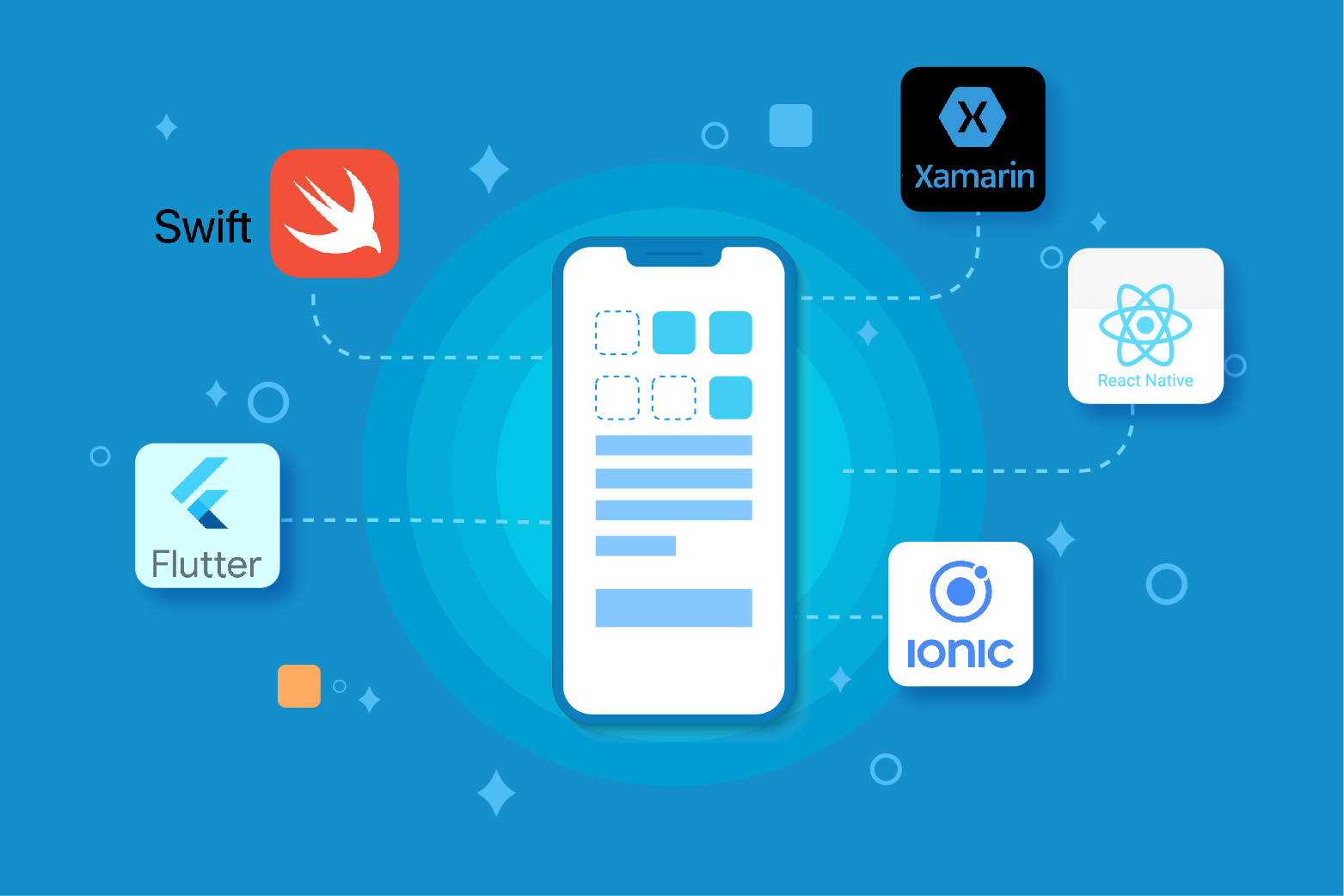The mobile app development landscape in 2025 is more dynamic than ever. With mobile usage continuing to rise globally, businesses are increasingly investing in high-performing, cross-platform applications. The demand for faster development cycles, user-friendly interfaces, and seamless performance across devices has driven the evolution of mobile app development frameworks. As technology advances, developers now have access to powerful tools that simplify the process, enabling faster time-to-market and reducing costs without compromising on quality.
In this guide, we’ll explore the best mobile app development frameworks in 2025, helping you choose the best one for your next project.
What is a Mobile App Framework?
A mobile app framework is a software library that provides a fundamental structure to support the development of mobile applications. It offers pre-written code, templates, and components that allow developers to focus more on the unique features of the app instead of building everything from scratch. Frameworks are essential as they speed up the development process, ensure code reusability, and facilitate easier cross-platform deployment.
These frameworks can also help manage the app’s design, performance, security, and compatibility with various devices, ensuring smooth operations across platforms like Android and iOS.
Types of Mobile App Frameworks
Choosing the best app development framework depends on understanding the different types available. Each type has its strengths, and selecting the right one will depend on your project’s needs, timeline, and budget.
1. Native App Frameworks
Native frameworks, like Swift for iOS or Kotlin for Android, are designed to build apps that work perfectly on one platform. They are known for their high performance because they are optimized for the specific operating system. Additionally, they also offer full access to the device’s hardware and features, like the camera or GPS.
2. Cross-Platform Frameworks
Cross-platform frameworks, such as Flutter or React Native, let developers write code once and use it on both Android and iOS. This approach saves time because there’s no need to create separate apps for each platform. Cross-platform frameworks are often the best app development framework choice for companies that want to launch their app quickly and reach a broader audience.
3. Hybrid App Frameworks
Hybrid frameworks, like Ionic and Apache Cordova, combine web technologies (HTML, CSS, JavaScript) with native capabilities. They wrap web apps inside a native container, allowing the app to run on multiple platforms.
Hybrid frameworks are good for projects that need fast development with web-based features.
The Best App Development Frameworks in 2025

1. Flutter
Flutter, developed by Google, is a cross-platform framework that allows developers to create apps for Android, iOS, and even web platforms using a single codebase. One of its standout features is the “hot reload“ capability, which speeds up development by showing real-time changes as you code.
Consequently, it’s excellent for building visually stunning apps with smooth animations and fast performance across platforms.
2. React Native
React Native, powered by Facebook, is another top cross-platform framework. It allows developers to use JavaScript to create mobile apps for both iOS and Android. React Native is known for its extensive library of ready-made components and strong community support. This framework provides reusable components, which means faster development and a high level of flexibility.
3. Xamarin
Xamarin is a Microsoft-owned framework that allows developers to create cross-platform apps using C# and . NET. With Xamarin, up to 90% of the code can be shared between Android and iOS apps, resulting in faster development times.
It’s perfect for developers who are familiar with Microsoft technologies and want near-native performance.
4. Ionic
Ionic is a hybrid framework that leverages web technologies like HTML, CSS, and JavaScript to build mobile apps. It is known for its wide range of pre-built UI components and plugins, which help speed up development.
Iconic is easy to learn for web developers and provides quick app deployment across multiple platforms, making it ideal for teams already experienced in web development.
5. Swift (for iOS)
Swift is Apple’s native framework for developing iOS apps. It is a fast and efficient language that’s easy to learn, offering high performance and tight integration with Apple’s platforms. When to choose Swift? If you’re developing an app exclusively for iOS, Swift delivers the best performance and access to all of Apple’s features and services.
How to Choose the Best App Development Framework for Your Project
There are several factors that you have to consider when selecting the best app development framework for your project:
1. Performance Needs
If your application demands top-notch performance and extensive access to device functionalities. You better consider utilizing frameworks such as Swift for iOS or Kotlin for Android.
These frameworks are specifically designed for each platform to guarantee rapid operation
2. Speed and Budget Optimization
If you aim to release your application or reduce development expenses efficiently and effectively. You may consider opting for a platform framework such as Flutter or React Native instead. When using these frameworks, you can launch your application on both Android and iOS platforms without the requirement of codebases.
3. Developer Expertise
Another factor is your development team’s experience. If your team is familiar with web technologies, frameworks like Ionic or Apache Cordova will make the transition to mobile development easier.
Emerging Trends in Mobile App Frameworks for 2025
Along with the ongoing evolution of technology, user expectations are higher, and mobile app development frameworks have to adapt to meet these challenges.
1. AI Integration
Artificial Intelligence (AI) is increasingly becoming a core feature in mobile apps. AI is used to improve personalization, and predictive analytics, and enhance user experiences with voice recognition, image processing, chatbots, and more.
Since AI has grown in popularity, frameworks are evolving to support the integration of AI-driven features more easily. For example, they now offer libraries, plugins, and pre-built tools to incorporate machine learning algorithms and AI functionalities into apps. This makes it easier for developers to build smarter apps without having to become AI experts themselves. Flutter and React Native, for instance, allow smooth integration with AI tools like TensorFlow and OpenAI APIs.




